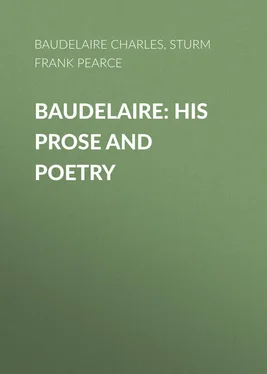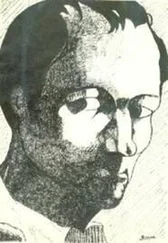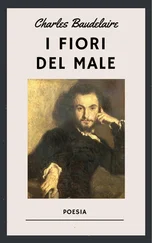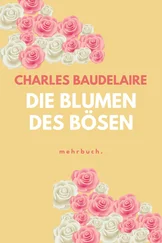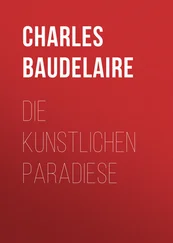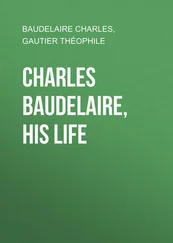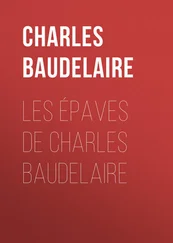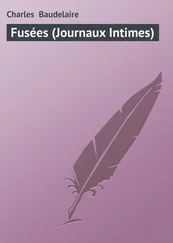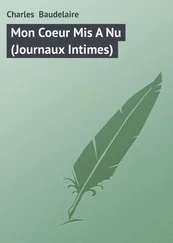Charles Baudelaire - Baudelaire - His Prose and Poetry
Здесь есть возможность читать онлайн «Charles Baudelaire - Baudelaire - His Prose and Poetry» — ознакомительный отрывок электронной книги совершенно бесплатно, а после прочтения отрывка купить полную версию. В некоторых случаях можно слушать аудио, скачать через торрент в формате fb2 и присутствует краткое содержание. Жанр: foreign_antique, foreign_prose, на английском языке. Описание произведения, (предисловие) а так же отзывы посетителей доступны на портале библиотеки ЛибКат.
- Название:Baudelaire: His Prose and Poetry
- Автор:
- Жанр:
- Год:неизвестен
- ISBN:нет данных
- Рейтинг книги:5 / 5. Голосов: 1
-
Избранное:Добавить в избранное
- Отзывы:
-
Ваша оценка:
- 100
- 1
- 2
- 3
- 4
- 5
Baudelaire: His Prose and Poetry: краткое содержание, описание и аннотация
Предлагаем к чтению аннотацию, описание, краткое содержание или предисловие (зависит от того, что написал сам автор книги «Baudelaire: His Prose and Poetry»). Если вы не нашли необходимую информацию о книге — напишите в комментариях, мы постараемся отыскать её.
Baudelaire: His Prose and Poetry — читать онлайн ознакомительный отрывок
Ниже представлен текст книги, разбитый по страницам. Система сохранения места последней прочитанной страницы, позволяет с удобством читать онлайн бесплатно книгу «Baudelaire: His Prose and Poetry», без необходимости каждый раз заново искать на чём Вы остановились. Поставьте закладку, и сможете в любой момент перейти на страницу, на которой закончили чтение.
Интервал:
Закладка:
In spite of the cry against Flowers of Evil , Baudelaire did not lack defenders among literary men themselves; and many enthusiastic articles were written in praise of his book. Thierry not unjustly compared him to Dante, to which Barbey d'Aurevilly replied, "Baudelaire comes from hell, Dante only went there"; adding at the finish of his article: "After the Flowers of Evil there are only two possible ways for the poet who made them blossom: either to blow out his brains or become a Christian." Baudelaire did neither. And Victor Hugo, after reading the two poems, "The Seven Old Men" and "The Little Old Women," wrote to Baudelaire. "You have dowered the heaven of art with one knows not what deathly gleam," he said in his letter; "you have created a new shudder." The phrase became famous, and for many years after this the creation of a new shudder was the ambition of every young French writer worth his salt.
When the first great wave of public astonishment had broken and ebbed, Baudelaire's work began to be appreciated by others than merely literary men, by all in fact who cared for careful art and subtle thinking, and before long he was admitted to be the greatest after Hugo who had written French verse. He was famous and he was unhappy. Neither glory, nor love, nor friendship – and he knew them all – could minister to the disease of that fierce mind, seeking it knew not what and never finding it; seeking it, unhappily, in the strangest excesses. He took opium to quieten his nerves when they trembled, for something to do when they did not, and made immoderate use of hashish to produce visions and heighten his phantasy. His life was a haunted weariness. Thomas de Quincey's Confessions of an English Opium-Eater seems to have fascinated him to a great extent, for besides imitating the vices of the author, he wrote, in imitation of his book, The Artificial Paradises , a monograph on the effects of opium and hashish, partly original, partly a mere translation from the Confessions .
He remembered his visions and sensations as an eater of drugs and made literary use of them. At the end of this book, among the "Poems in Prose," will be found one entitled "The Double Chamber," almost certainly written under the influence of opium, and the last verse of "The Temptation" —
"O mystic metamorphosis!
My senses into one sense flow —
Her voice makes perfume when she speaks,
Her breath is music faint and low!"
as well as the last six lines of that profound sonnet "Correspondences" —
"Some perfumes are as fragrant as a child,
Sweet as the sound of hautboys, meadow-green;
Others, corrupted, rich, exultant, wild,
Have all the expansion of things infinite:
As amber, incense, musk, and benzoin,
Which sing the sense's and the soul's delight,"
are certainly memories of a sensation he experienced under the influence of hashish, as recorded in The Artificial Paradises , where he has this curious passage: – "The senses become extraordinarily acute and fine. The eyes pierce Infinity. The ear seizes the most unseizable sounds in the midst of the shrillest noises. Hallucinations commence… External objects take on monstrous appearances and show themselves under forms hitherto unknown… The most singular equivocations, the most inexplicable transposition of ideas, take place. Sounds are perceived to have a colour, and colour becomes musical. " Baudelaire need not have gone to hashish to discover this. The mystics of all times have taught that sounds in gross matter produce colour in subtle matter; and all who are subject to any visionary condition know that when in trance colours will produce words of a language whose meaning is forgotten as soon as one awakes to normal life; but I do not think Baudelaire was a visionary. His work shows too precise a method, and a too ordered appreciation of the artificial in beauty. There again he is comparable to Aubrey Beardsley, for I have read somewhere that when Beardsley was asked if ever he saw visions, he replied, "I do not permit myself to see them, except upon paper." The whole question of the colour of sound is one of supreme interest to the poet, but it is too difficult and abstract a question to be written of here. A famous sonnet by Rimbaud on the colour of the vowels has founded a school of symbolists in France. I will content myself with quoting that – in the original, since it loses too much, by translation:
"A noir, E blanc, I rouge, U vert, O bleu, voyelles,
Je dirai quelque jour vos naissances latentes,
A, noir corset velu des mouches éclatantes
Qui bourdonnent autour des puanteurs cruelles,
Golfes d'ombres; E, candeurs des vapeurs et des tentes,
Lances des glaciers fiers, rois blancs, frissons d'ombrelles;
I, pourpres, sang craché, rire des lèvres belles
Dans la colère ou les ivresses pénitentes;
U, cycles, vibrements divins des mers virides,
Paix des pâtis semés d'animaux, paix des rides
Que l'alchimie imprime aux grands fronts studieux.
O, suprême clairon, plein de strideurs étranges,
Silences traversés des mondes et des anges.
– O l'Oméga, rayon violet de ses yeux."
It is to be hoped that opium and hashish rendered Baudelaire somewhat less unhappy during his life, for they certainly contributed to hasten his death. Always of an extremely neurotic temperament, he began to break down beneath his excesses, and shortly after the publication of The Artificial Paradises , which shows a considerable deterioration in his style, he removed from Paris to Brussels in the hope of building up his health by the change. At Brussels he grew worse. His speech began to fail; he was unable to pronounce certain words and stumbled over others. Hallucinations commenced, no longer the hallucinations of hashish; and his disease, rapidly establishing itself, was recognised as "general paralysis of the insane." Gautier tells how the news of his death came to Paris while he yet lived. It was false news, but prematurely true. Baudelaire lingered on for another three months; motionless and inert, his eyes the only part of him alive; unable to speak or even to write, and so died.
He left, besides The Flowers of Evil and Little Poems in Prose (his masterpieces), several volumes of critical essays, published under the titles of Æsthetic Curiosities and Romantic Art; The Artificial Paradises , and his translations of the works of Edgar Allan Poe – admirable pieces of work by which Poe actually gains.
III
Baudelaire's love of the artificial has been insisted upon by all who have studied his work, but to my mind never sufficiently insisted upon, for it was the foundation of his method. He wrote many arguments in favour of the artificial, and elaborated them into a kind of paradoxical philosophy of art. His hatred of nature and purely natural things was but a perverted form of the religious ecstasy that made the old monk pull his cowl about his eyes when he left his cell in the month of May, lest he should see the blossoming trees, and his mind be turned towards the beautiful delusions of the world. The Egyptians and the earliest of the Christians looked upon nature not as the work of the good and benevolent spirit who is the father of our souls, but as the work of the rebellious "gods of generation," who fashion beautiful things to capture the heart of man and bind his Soul to earth. Blake, whom I have already quoted, hated nature in the same fashion, and held death to be the one way of escape from "the delusions of goddess Nature and her laws." Baudelaire's revolt against external things was more a revolt of the intellect than of the imagination; and he expresses it, not by desiring that the things of nature should be swept away to make room for the things of the spirit, but that they should be so changed by art that they cease to be natural. As he was of all poets the most intensely modern, holding that "modernity is one-half of art," the other half being something "eternal and immutable," he preferred, unlike Blake and his modern followers, to express himself in quite modern terms, and so wrote his famous and much misunderstood Éloge du Maquillage to defend his views. As was usual with him, he pushed his ideas to their extreme logical sequence, and the casual reader who picks up that extraordinary essay is in consequence quite misled as to the writer's intention.
Читать дальшеИнтервал:
Закладка:
Похожие книги на «Baudelaire: His Prose and Poetry»
Представляем Вашему вниманию похожие книги на «Baudelaire: His Prose and Poetry» списком для выбора. Мы отобрали схожую по названию и смыслу литературу в надежде предоставить читателям больше вариантов отыскать новые, интересные, ещё непрочитанные произведения.
Обсуждение, отзывы о книге «Baudelaire: His Prose and Poetry» и просто собственные мнения читателей. Оставьте ваши комментарии, напишите, что Вы думаете о произведении, его смысле или главных героях. Укажите что конкретно понравилось, а что нет, и почему Вы так считаете.
